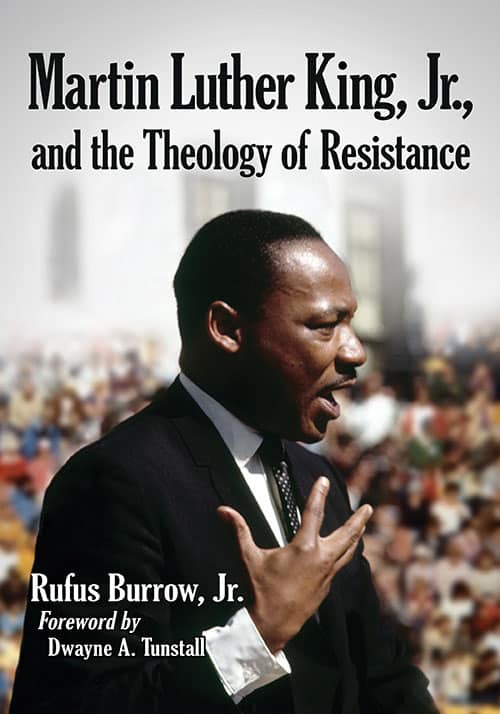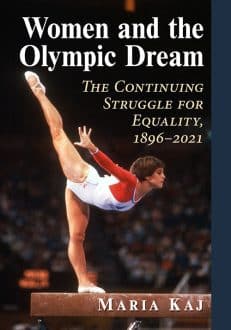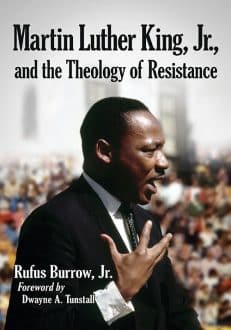Martin Luther King, Jr., and the Theology of Resistance
$29.95
In stock
About the Book
It has been nearly fifty years since Martin Luther King, Jr., was assassinated at the Lorraine Motel in Memphis, Tennessee. Appraisals of King’s contributions began almost immediately and continue to this day. The author explores a great many of King’s chief ideas and socio-ethical practices: his concept of a moral universe, his doctrine of human dignity, his belief that not all suffering is redemptive, his brand of personalism, his contribution to the development of social ethics, the inclusion of young people in the movement, sexism as a contradiction to his personalism, the problem of black-on-black violence, and others. The book reveals both the strengths and the limitations in King’s theological socio-ethical project, and shows him to have relentlessly applied personalist ideas to organized nonviolent resistance campaigns in order to change the world. Instructors considering this book for use in a course may request an examination copy here.
About the Author(s)
Bibliographic Details
Rufus Burrow, Jr.
Foreword by Dwayne A. Tunstall
Format: softcover (7 x 10)
Pages: 292
Bibliographic Info: frontispiece, notes, bibliography, index
Copyright Date: 2015
pISBN: 978-0-7864-7786-9
eISBN: 978-1-4766-1732-9
Imprint: McFarland
Table of Contents
Acknowledgments ix
Foreword by Dwayne A. Tunstall 1
Introduction 5
Part I: Man of Ideas and Ideals
1. The Universe as Fundamentally Moral 17
2. The Church and a Value-Fused Universe 30
3. Doctrine of Human Dignity 41
4. Personalism and Moral Laws 58
5. The King Type of Personalism 71
6. Reflections on King as Theological Social Ethicist 90
Part II: Pursuing the Dream
7. The Humanity of King and the Continued Vigilance in Pursuing His Dream 111
8. Josiah Royce and the Beloved Community 120
9. Call to Establish the Beloved Community 134
10. When a King Dreamed in Public 150
11. Contributions of Children and Young People 168
12. Not All Suffering Is Redemptive 188
Part III: Where Do We Go from Here?
13. Sexism as Contradiction to King’s Personalism 199
14. King and Intra-Community Black Violence 215
15. White Moderates, White Liberals and King’s Dream 229
Chapter Notes 245
Bibliography 269
Index 275
Book Reviews & Awards
• “A helpful collection of essays on King’s social ethics…Burrow’s additions to the scholarship draw upon the life of King as a model for synthesizing social ethics and concrete social reform…it also stands as the fruit of a long career of scholarship…recommended”—Choice
• “Sheds light on King’s belief in the power of nonviolence and his philosophy of personalism, and Burrow weaves with finesse a historical biopic that shows the reader that the two go hand-in-hand—The Expository Times
• “Scholars of King and of the civil rights movement will surely benefit from Burrow’s work”—The Journal of Southern History





